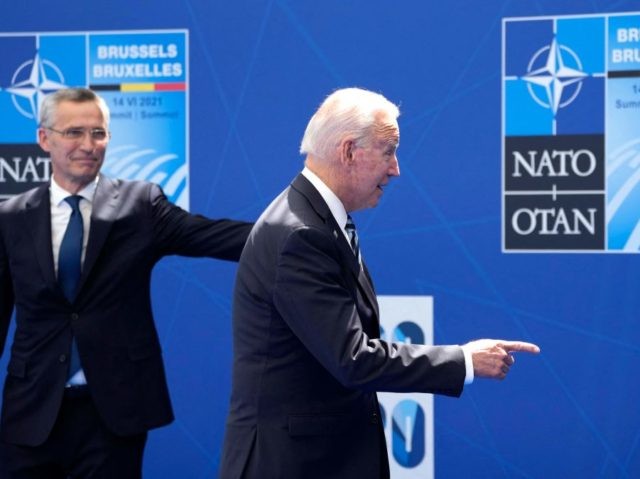Joe Biden’s first NATO summit as U.S. President has concluded, with members welcoming a “new chapter” in relations that closely resembles the old, pre-Trump status quo.
Monday’s summit, like the G7 meeting that proceeded it, included a focus on China, but media messaging coming from the Brussels meeting was at pains to stress that things were changing now the alliance’s leading member, the United States, has a new President.
Speaking with President Biden on Monday afternoon, Secretary-General of NATO Jens Stoltenberg hit these notes when he said: “We meet at a pivotal time for our Alliance. We will open a new chapter in our transatlantic relationship with the meeting today… We will address China, and we have seen the convergence of views among Allies. We all recognize that China’s heavy investments in military capabilities, continued coercive behavior, and their growing influence matters for our security… I know that we can count on America and that America can count on Europe.”
As Trump Heads to Two-Percenter NATO Club Lunch, Praises Tremendous, Stronger Alliance https://t.co/YXYYuwRoCI
— Breitbart London (@BreitbartLondon) December 4, 2019
President Biden’s response was a step-change from the rhetoric heard by Europeans during the Trump era, where the messaging was that if NATO members wished to continue to benefit from the co-prosperity and collective security of the alliance, they would have to at least achieve the bare minimum enshrined by NATO. Striking a more conciliatory tone and applying no pressure on NATO allies to be better, President Biden said that the U.S. considered NATO “sacred” and that “I just want all of Europe to know that the United States is there. The United States is there.”
There is no doubt that President Trump’s tough talk was not always popular, for it shone a light very closely on the failures of the vast majority of NATO members to actually contribute in any meaningful sense to the collective through historically rock-bottom defence spending, a matter of embarrassment for the leaders of some first-world nations. The mainstream media pilloried Trump for what they characterised as his attacks on NATO, repeatedly claiming that his insistence that it shape up amounted to an attack on the alliance that actually weakened it.
Yet NATO leaders at the top of the organisation — even those with very little ideological common ground with the former President — acknowledged at the time that his demands were actually strengthening the alliance, a fact abundantly borne out in NATO’s own figures.
Joe Biden Blasts Conservative Govts of NATO Allies Poland and Hungary as 'Totalitarian Regimes' https://t.co/WrJs7nQ5yT
— Breitbart London (@BreitbartLondon) October 18, 2020
Britain’s Theresa May — by no means an easy Trump ally — hailed the President for strengthening NATO by encouraging its members to do more. She said in 2019: “Thanks in part to your clear message on burden sharing, Donald, we have seen members pledge another $100 billion, increasing their contributions to our shared security.”
NATO boss Jens Stoltenberg also made this concession, saying in 2018 that the “upswing” in defence spending across NATO “demonstrates that his efforts are making a difference”.
When not standing alongside President Biden, Stoltenberg took on a more Trumpian tone earlier in the day, The Times reports, when he again called on NATO members to do more — a reflection that while the last few years have seen historic progress, the baseline of defence spending remains a distant target for most NATO members. “…we need to invest more”, Stoltenberg said.
Delingpole: NATO’s New Mission – Saving the World from ‘Climate Change’ https://t.co/49KyxgZsya
— Breitbart London (@BreitbartLondon) October 8, 2020

COMMENTS
Please let us know if you're having issues with commenting.